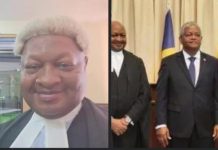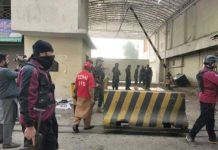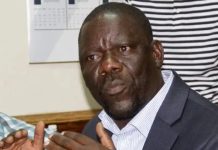By Christopher K.
Africa-Press – Zambia. My dear Laura Miti, the media and to all the people of Zambia,
The ongoing national conversation about our constitution is not a new one; it is a thread that has run through the very fabric of our nation since before the flag of independence was raised. The notion that we can ever craft a constitution that satisfies everyone is a beautiful but elusive ideal.
The reality, as our history starkly reveals, is that constitution-making is, by its very nature, a contentious and political process. To believe otherwise is to misunderstand the dynamics of power, society, and democracy itself.
Let us walk through this history, step by step, to understand why controversy is not a sign of failure, but a feature of the process.
The Pre-Independence and Early Post-Independence Blueprint: Power in Embryo
Even before 1964, the foundations of controversy were laid. The constitution that the British gave us was not a divine gift; it was a political document designed to manage the transfer of power. While it established a multi-party democracy, it also set the stage for a strong executive.
Kenneth Kaunda’s brief tenure as Prime Minister of Northern Rhodesia was embedded within this colonial framework, which was more about administrative handover than a deep-seated belief in democratic pluralism. The seeds of a powerful central government were sown by the colonial master, and our first independent government was all too ready to nurture them.
The 1973 One-Party State Constitution: The People Silenced
The first major rupture in our constitutional journey was the 1973 Constitution. Under the mantra of “national unity” and to prevent “tribal divisions,” the one-party state was institutionalized. This was a profound and definitive act of elite interest. The ruling United National Independence Party (UNIP), under President Kaunda, effectively used the constitution not as a tool to empower the people, but as a legal instrument to entrench itself, eliminate political competition, and monopolize power. The “people-driven” mantra was absent; it was replaced by a state-driven decree, demonstrating clearly how a ruling party will use the constitution to secure its own survival.
The 1991-1996 Return to Multi-Party Politics: New Players, Old Tactics
The return to multi-party politics in 1991 was a victory for popular will, but the subsequent constitutional processes revealed that the patterns of the past were hard to break. The Movement for Multi-Party Democracy (MMD), which had championed democracy, soon began to exhibit the same tendencies it had opposed. The 1996 Constitution, particularly its controversial citizenship clause aimed at a specific political opponent, was a clear indication that the new elites in power were also willing to manipulate the supreme law for political advantage. The rejection of key recommendations from its own Mwanakatwe Commission showed that “people’s input” was acceptable only as long as it did not threaten the ruling party’s interests.
The Long Charade of “People-Driven” Consultations
For decades, we have been trapped in a cycle of expensive commissions and nationwide consultations. The Mung’omba Commission draft of 2005 was hailed as a landmark of popular participation. Yet, what became of it? It was shelved, ignored, and its most progressive elements were only cherry-picked years later. This cycle has bred immense public mistrust. The media and vested interests—both economic and political—have fueled this mistrust, often framing the process as a zero-sum game where one side’s gain is the other’s loss. The truth is, the call for a “people-driven constitution” has often been used as a slogan by the opposition and civil society to challenge the government, and by the government to legitimize a process it ultimately controls.
The Mwanawasa Era: The National Constitutional Conference (NCC)
President Levy Mwanawasa inherited the acclaimed Mung’omba Commission draft but chose a different path. He established the National Constitutional Conference (NCC), a massive, protracted, and government-dominated assembly. The controversy was immediate and profound. Key opposition parties and civil society groups boycotted the process, arguing it was designed to allow the ruling MMD to cherry-pick and water down the progressive elements of the Mung’omba draft. The NCC became a symbol of a captured process—long, expensive, and ultimately failing to produce a legitimate constitution before President Mwanawasa’s untimely death.
The Lungu Era: The 2016 Constitution
Under President Edgar Lungu, Zambia finally adopted a new constitution in 2016. While it introduced crucial reforms like the 50%+1 threshold for presidential elections, the process was marred by accusations of a “stroke of the pen” imposition. The government was criticized for bypassing a broader national consensus and rushing the adoption, leading to claims that it was more about consolidating the Patriotic Front’s (PF) legal standing than enacting a truly people-driven charter. It was a classic case of a ruling party delivering long-demanded changes, but on its own terms, thereby tainting the victory with controversy.
The Recent Past: PF, Bill 10, and the Strategy of “Non-Controversial” Reforms
Our observation about the current government’s approach is astute. After the polarizing and ultimately failed attempt by the Patriotic Front (PF) to introduce Bill 10—a classic example of a ruling party seeking to embed clauses (like the controversial running mate clause and changes to parliament composition) that would have advantaged it structurally—the current administration has taken a different tack.
By picking what are deemed “non-controversial” articles from previous drafts, the government is attempting to sidestep the political landmines and reduce the exorbitant costs of new commissions. This is a pragmatic recognition of the stalemate. Similarly, the PF’s push for Bill 10 was a stark reminder that every ruling party, regardless of its ideology, is tempted to shape the rules of the game in its favour, in the name of “stability” or “national interest.”
The Inescapable Truth: Controversy is Inevitable
So, where does this leave us, Lara Miti? It leaves us with a fundamental truth: there will never be a time when we have a universally accepted, “people-driven” constitution. This is not a Zambian failing; it is a reality of democracy. A constitution is the bedrock of power distribution. It will always be contested.
· If the opposition proposes something, the government will reject it if it diminishes its authority.
· If the government proposes something, the opposition and civil society will scrutinize it for hidden advantages.
· The idea that “the people” are a monolithic entity with a single voice is a fiction. Our society is a vibrant tapestry of competing interests: traditional leaders, the church, civil society, the private sector, and political associations. They will always have inputs and disagreements.
A Call for Resolute and Decisive Leadership
Therefore, the solution is not to endlessly chase an impossible consensus. The solution is for a government that truly means well to be resolute and decisive.
1. Organize Cost-Effective Fora: Instead of nationwide tours that drain the treasury, the government should convene structured, cost-effective forums with key sections of society—like: traditional leaders, the church, civil society, the private sector, and professional associations.2. Listen, Consolidate, and Decide: In these fora, let all inputs and disagreements be heard. Let the debate be robust. Then, the government, elected by the people to lead, must consolidate these views and make the ultimate decision.
3. Do Not Back Down: If the resulting constitutional amendments are in the genuine long-term interest of the nation’s stability and development, the government must not back down in the face of the inevitable political noise. Leadership is about making tough choices, not pleasing everyone.
This is how it has always been, from the colonial order-in-council to the one-party state to the present day. The forum for input may change, but the ultimate decision-maker has always been the governing authority of the day.
Let us enlighten ourselves and our leaders. Let us stop pretending that a perfect, uncontested constitution is possible. Instead, let us strive for a functional and improving one, crafted through inclusive but decisive leadership. The government should press on, absorb the criticisms, and enact the changes it believes will move the nation forward. History will be the judge.
Source: zambianobserver
For More News And Analysis About Zambia Follow Africa-Press







